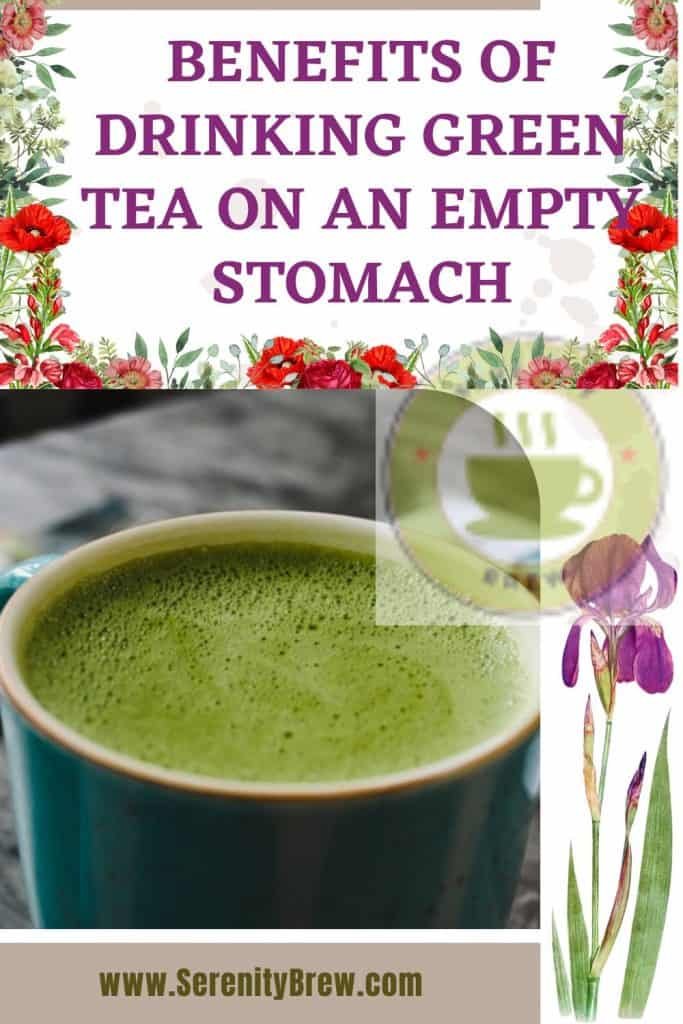
Having a tea or an infusion after eating is a good habit that many have. However, drinking your tea on an empty stomach can allow you, according to some studies, to take better advantage of its properties.
The different varieties of tea, especially the green ones, provide the body with antioxidants and other beneficial substances that allow us to combat oxidative stress, premature aging and various inflammatory and bacterial diseases. Let’s see how consuming tea on an empty stomach affects your body.
Why should you drink your green tea on an empty stomach?
Due to its properties, green tea is often taken as a mechanism to help diets for weight loss. For this reason, it seeks to maximize its effectiveness. The benefits of drinking tea on an empty stomach are based on the results of different scientific studies and are as follows.
Speed up metabolism
Several investigations have concluded that tea activates the metabolism, thus increasing fat burning. Of course, this is intensified if physical exercise is performed after consumption.
Are you one of those people who eats a good breakfast before going for a run? You might want to try eating breakfast after exercise and before (and during) hydration with a nice cup of tea.
In China, for example, green tea or Pu-erh is drunk on an empty stomach with the aim of speeding up the metabolism to promote weight loss.
Better absorb nutrients from tea
Many people find that the best time to drink tea is 20 to 30 minutes before meals. Why? It is assumed that, in this way, the body would better absorb its different vitamins and minerals.
Do not interfere with iron absorption
According to a study, the tannins present in tea, and especially in green tea, could interfere with the correct absorption of iron. This happens mainly if the tea is taken with a meal or very shortly after it. Therefore, drinking green tea on an empty stomach would minimize this situation.
Relaxed stimulation
We have already talked about the caffeine present in tea before. In fact, we have even made a ranking of the infusions with the highest amount of theine. However, did you know that the caffeine in tea is absorbed more slowly than that in coffee? Thus, you get a long-term stimulation that, when combined with the amino acid L-theanine present in tea, improves concentration while generating an interesting feeling of relaxation.
Improve intermittent fasting results
Intermittent fasting diets have become fashionable in recent years. These consist of alternating periods of fasting with others in which food is eaten. The times can vary considerably. Thus, while some people fast 24 hours a week with the aim of purifying the body, others carry out, for example, 12 hours of fasting followed by 12 hours of food intake. The variations, as you can imagine, are multiple.
A study concluded that intermittent fasting generates an adaptation of the body that reduces inflammation and body stress, reducing the risk of diseases such as diabetes, arthritis and hypertension, among others.
Now, what does tea have to do with all this? To begin with, we have already pointed out that tea affects the acceleration of metabolism, improving fat burning. If the expectation when performing intermittent fasting is to lose weight, tea can be an excellent ally.
On the other hand, those who start an intermittent fasting diet often fight against hunger (let’s admit that it is not at all easy to go so many hours without eating). In this case, the tea not only collaborates by hydrating the body but also helps it to have energy while generating a feeling of a full stomach. This is because the catechins in tea inhibit the secretion of the hormone responsible for sending hunger signals to the brain.
For this reason, this type of diet often recommends helping yourself by drinking green tea on an empty stomach to reduce the feeling of hunger, allowing you to carry out the intermittent fasting diet more comfortably. The same is true if you follow a calorie-restricted diet: drinking tea first thing in the morning may be just what you need to eat less food for breakfast.
Disadvantages of drinking tea on an empty stomach
The main problem that can be associated with fasting tea consumption is that its tannins and theine can worsen heartburn in those who suffer from it. Doctors are currently studying whether tea consumption may be related to gastroesophageal reflux. However, no research has found a direct relationship.
Fasting tea: which one to choose?

Whether you don’t like breakfast but do have a hot drink before going to work or if you want to lose weight, these are the most recommended teas to consume on an empty stomach:
Green Tea
Numerous studies have been carried out trying to establish the relationship between green tea consumption and weight loss and, although the data is not conclusive, it is believed that the association of caffeine with catechins is responsible for the positive effect of drinking green tea in weight loss and maintenance.
Pu-erh
Natural medicine recommends, due to its properties, red tea to accompany slimming diets as it has a high content of gallic acid, a component that is associated with fat burning.
White tea
Being the least processed tea, it has a higher amount of polyphenols, an antioxidant substance that speeds up metabolism by stimulating fat burning.
In conclusion, drinking green tea on an empty stomach can be a good ally to lose weight. However, it is not a miracle remedy that will allow you to lose weight overnight. If you want to lose those extra pounds, we advise you to go to your trusted doctor to design a menu adapted to your nutritional and caloric needs.
